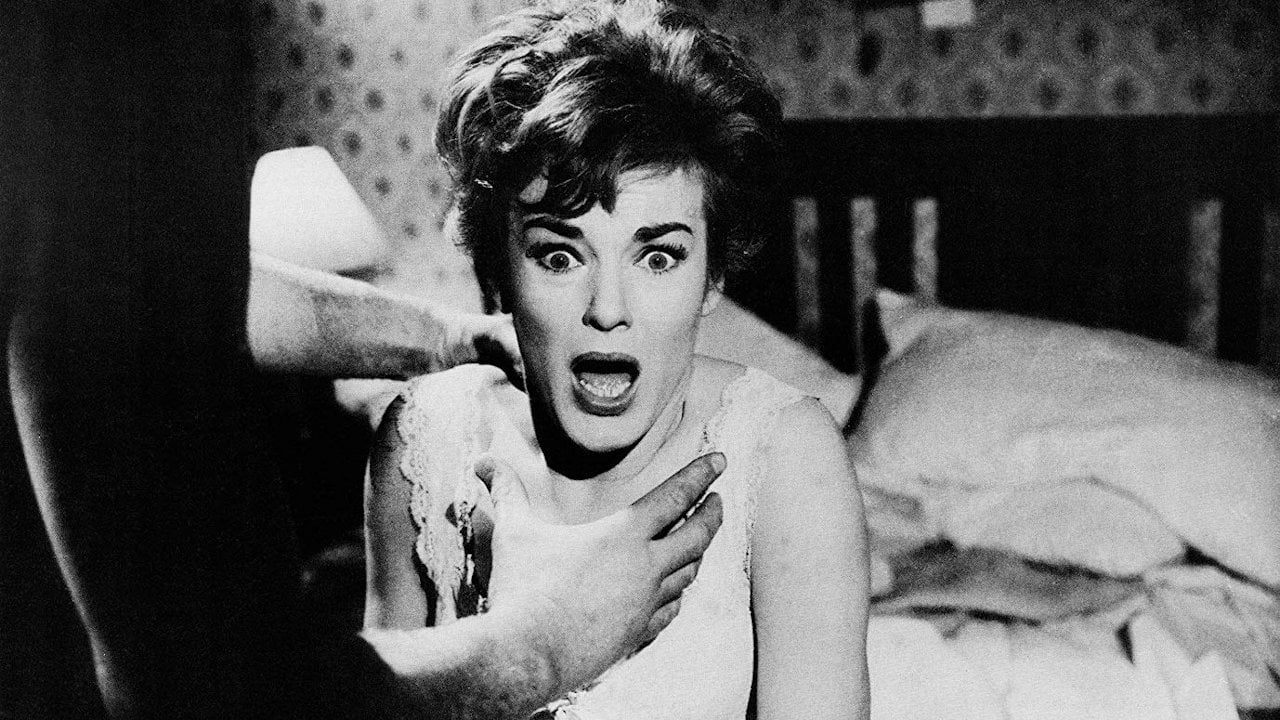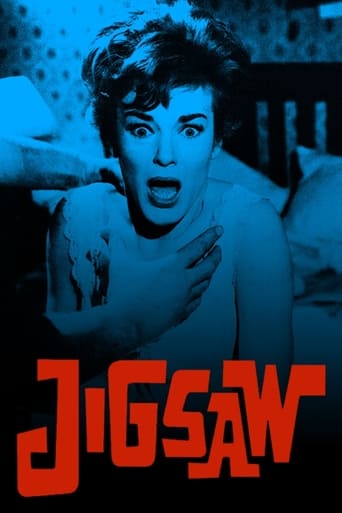



Self-important, over-dramatic, uninspired.
Let's be realistic.
I am only giving this movie a 1 for the great cast, though I can't imagine what any of them were thinking. This movie was horrible
View MoreA clunky actioner with a handful of cool moments.
A woman tells her lover - whose voice we don't hear and whose face we don't see - that she's pregnant. She seems happy hoping that he will the right thing. Then a look of horror comes over her face. An estate agent (realtor) reports a burglary in which the only things that were taken were some leases. The only reason the detectives (lead by Jack Warner, though the film's tone is darker than Dixon of Dock Green) investigating the case - robberies were treated seriously back then - can think of why someone would steal a lease was that it contained a sample of the thief's handwriting. They start by checking out the only short-term lease stolen. They find partial remains of a dismembered woman. This leads to further puzzles. Who was the dead woman? Why did the killer, who had been systematically destroying evidence, stop doing so before he was finished? I won't say any more to avoid spoilers. Jigsaw is a well-made police procedural that today would be a two-hour TV movie of the Morse/Maigret variety. There a number of satisfying false leads with a nice twist towards the end, though the very last piece of the puzzle I found a bit obvious. Most of the acting is fine with the leads seemingly effortlessly believable but when some of the supports have to show emotion they go a bit over the top.
View MoreVal Guest was a prolific screenwriter and director, and he knew his business. Among his many triumphs are "Oh Mr Porter!" with Will Hay and "Murder at the Windmill" of a murder at the legendary Windmill theatre that kept open throughout the war, with other witty and often ingenious comedies and thrillers, but here he is dealing with a real murder that occurred in reality. The inspectors understand nothing of it. The murderer has left no trace, the murdered woman is unknown and cannot be identified, all clues lead astray, and although the murderer is present in flashbacks you never see his face. It's meticulous arduous methodical police work all the way, very much like Jules Dassin's "Naked City" from New York 15 years earlier, like a criminal documentary, but it's expertly done. You can't lose interest for a moment, the dialogue is constantly sustained and pregnant, the investigation leads on, and ultimately you come closer to the target, who of course never could be suspected at all.The camerawork is impressive with its constant shifts by association, a jigsaw puzzle introducing the cryptic way ahead, one face shifting into another in flashbacks, one car shifting into another, and so forth. It's cinematic and dramaturgic eloquence all the way, and when the final piece of the puzzle suddenly is found there is nothing more to add although the story goes on - the picture is completed, and that's enough.
View MoreIt's Brighton in the early 60s. A lonely house. A tarty blond gets out of bed and informs her boyfriend that she's pregnant so they'll have to be married. This is a big mistake on her part. The boyfriend evidently doesn't want to build a home because he kills her, chops her up, and stashes her in a trunk in the garage -- most of her, anyway.We never do see the killer and thereby hangs a tail. The renter of the house, Brian Oulton, is all upset because the occupants are behind in their payments so the police are called in. They are Jack Warner and Ronald Lewis. At first, knowing only that the "Campbells" skipped on the rent, they poke around the house in a leisurely fashion, examining the furniture, the furnace, and so on, all quite disinterestedly, despite being nettled by Oulton, the impatient owner. Once the body is uncovered, the police shift into high gear and the film turns into a nifty policier.The director, Val Guest, also wrote the screenplay. He doesn't waste a moment. There is occasional overlapping dialog, some brisk but friendly banter, orders are casually snapped out and followed at once. The police have no names, neither the victim nor the presumed killer, and begin visiting neighbors and shops, trying to piece together enough independent data to complete a picture of what happened. I presume that's where the title, "Jigsaw", comes from, and not from the fact that the girl's body was so gruesomely mishandled.The story itself is too complicated to describe in any detail. Most of these detective stories are. There are many red herrings before the final capture, but the movie ends on a cute note. The killer's alibi rests on an excuse that it was an accident. The poor girl tripped and bashed her head in. In a panic, the killer ran out and bought the instruments that sawed her up. But that was after she was already dead, a Monday night. The alibi is disproved in the last shot when Warner points to a poster advertising a musical performance featuring Beethoven's Piano Concerto, Schubert's Fourth Symphony, and something by Malcolm Arnold. The performance was on Monday night -- Easter -- so all the hardware shops were closed. He must have bought the instruments earlier, so the murder was deliberate. The gag is Malcolm Arnold's name. He scored every British movie ever made between 1900 and 2014, and all his scores were conducted and recorded by Muir Matheson.It's a little long but thoroughly enjoyable for what it is.
View MoreDespite the presence of Jack Warner as a senior policeman, the world of "Jigsaw" is a far cry from the cosy atmosphere of "Dixon of Dock Green". Effective camerawork makes Brighton a faintly sinister setting for this murder mystery. The standard of acting is generally high, (although I found Yolande Donlan's performance a little overwrought for my taste) and a strong script from Guest ensures that the detailed police investigation contains enough action (and unexpected revelations) to hold the viewer's interest to the very end.
View More